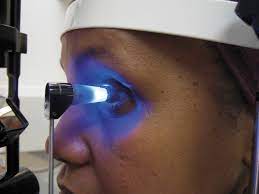YES, glaucoma can run in families. Studies have shown that genetic factors play a role in the development of the disease. However, it’s important to note that not everyone with a family history of glaucoma will develop the disease, and conversely, some people without a family history of the disease may still develop it.
There are several types of glaucoma, but the most common type, open-angle glaucoma, has been linked to several genetic mutations. These mutations can lead to a buildup of fluid in the eye, causing increased pressure and damage to the optic nerve. Researchers have identified several genes that may be associated with an increased risk of developing open-angle glaucoma, including MYOC, OPTN, WDR36, and CAV1/CAV2.
In addition to these specific genetic mutations, researchers have also identified certain genetic variations that may increase a person’s overall risk of developing glaucoma. These variations may affect genes that are involved in the regulation of intraocular pressure or the health of the optic nerve.
Having a family history of glaucoma is considered a significant risk factor for developing the disease. According to the Glaucoma Research Foundation, people with a first-degree relative (such as a parent or sibling) who has glaucoma are up to nine times more likely to develop the disease themselves. However, the exact degree of increased risk may vary depending on the specific type of glaucoma and the number of affected family members.
It is important for people with a family history of glaucoma to have regular eye exams and to inform their eye doctor of their family history. Early detection and treatment are essential for preserving vision and preventing vision loss from glaucoma. Eye exams can detect signs of glaucoma before symptoms appear, and treatment options may include medications, laser therapy, or surgery, depending on the severity of the disease.
In summary, while not everyone with a family history of glaucoma will develop the disease, having a family history is a significant risk factor. Researchers have identified several genetic mutations and variations that may increase the risk of developing glaucoma, particularly open-angle glaucoma. Early detection and treatment are crucial for managing the disease and preventing vision loss, especially for those with a family history of the disease.
At The Eye Center- Dr. Mahnaz Naveed Shah & Associates our team of eight ophthalmology subspecialists/ eye specialists, eye surgeons who are considered amongst the very best eye specialists in Karachi and in Pakistan, have the diagnostic and treatment capabilities to treat from the simplest to the most complex patients. We work hard to provide our patients with the best possible medical and surgical eye care, in a state of the art purpose built eye care facility. We offer the entire array of medical, laser and surgical treatments to help provide patients the best possible care in the most efficient, safe and ethical manner.
If you need an appointment, please contact us at 03041119544 during our working hours or leave us a WhatsApp message at +923028291799 and someone will connect with you. Walk-in appointments are also available for emergencies. We can also be reached through our web portal on www.surgicaleyecenter.org

